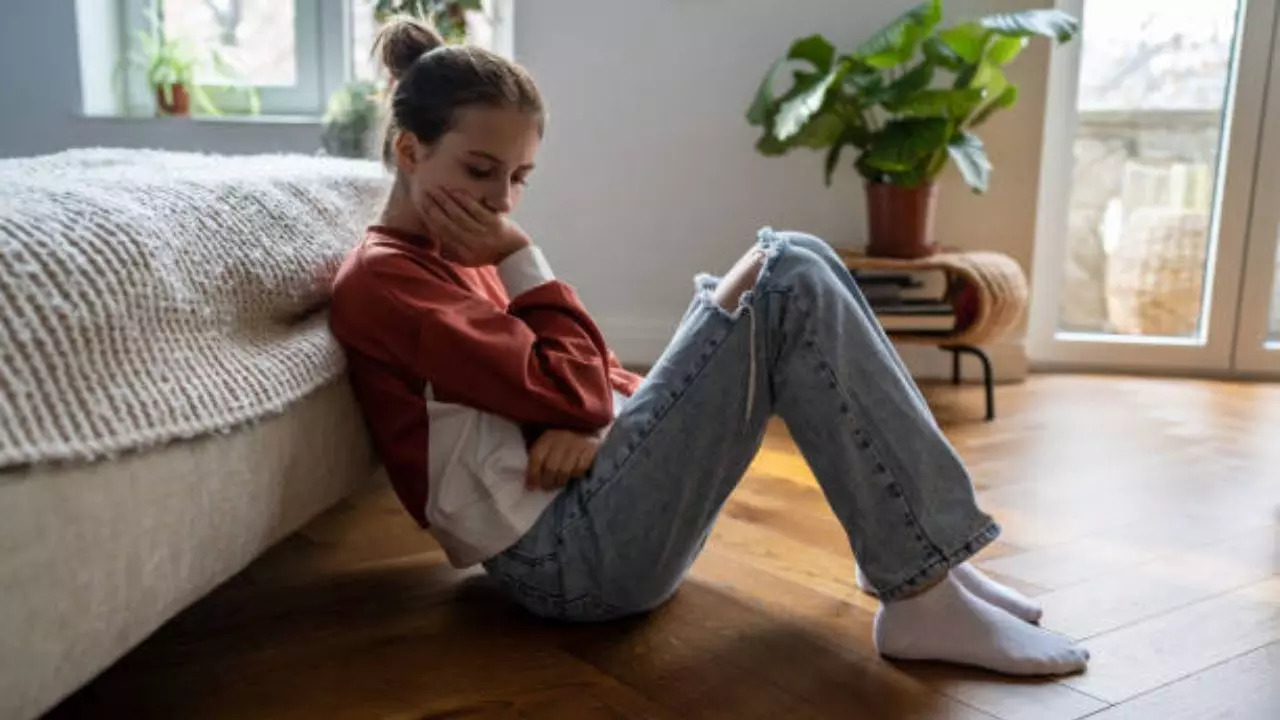Disruptions to daily routines during COVID-19 lockdown have led to behavioural problems in teenagers, a study has found (Image credit: iStock)
According to researchers at the University of Washington, COVID-19 lockdowns, including school closures, canceled sports activities and stay-at-home orders, may have prematurely aged adolescent brains by up to four years. The study, published in the Proceedings of the National Academy of Sciences, adds to growing evidence that disruptions to daily routines during the pandemic may have led to an increase in behavioral problems, eating disorders and anxiety. anxietyand depression in both adolescent boys and girls.
Researchers at the university’s Institute for Learning and Brain Sciences (I-LABS) initially began a study in 2018 to look at how the brain structures of 160 Seattle-area adolescents developed over time, using MRI scans. The participants, nearly equal in number of boys and girls, were between the ages of 9 and 19 at the start of the study. However, the onset of COVID-19 lockdowns in 2020 halted follow-up brain scans until 2021, prompting researchers to shift focus to how lockdowns may have affected adolescent brain development.
Lead researcher Patricia Kuhl, co-director of I-LABS, explained that by looking at the thickness of the cerebral cortex (the outer layer of the brain responsible for higher-level functions such as reasoning and decision-making), they found significant changes. Brain scans revealed that male adolescents had aged 1.4 years longer, while the brains of female adolescents showed an accelerated aging of 4.2 years during the lockdown period.
The cerebral cortex naturally thins with age, and chronic stress can also speed up this process. The study found that during the three years between the first and second scans, cortical thinning was much more pronounced than expected. “As we age, thinning of the cortex is associated with slower processing time and less flexible thinking, all of which are common with aging,” Kuhl said. “All of the adolescents showed accelerated aging, but it was more pronounced in girls.”
In teenage girls, brain scans revealed widespread thinning across 30 brain regions, affecting both hemispheres and all lobes. In boys, however, the thinning was limited to two regions of the occipital lobe, which is associated with distance perception, face recognition and memory. Kuhl suggested that the more pronounced effect in girls may be related to their greater reliance on social interactions for emotional support, unlike boys, who tend to focus more on physical activities such as sports.
“When girls and women are stressed, there is a natural tendency to gather together and talk about it, which releases oxytocin and other neurotransmitters that provide relief,” said Dr. Ellen Rome, director of adolescent medicine at Cleveland Clinic Children’s Hospital, who was not involved in the research. “The lack of social interaction during lockdowns may have had a more severe impact on girls than on boys.”
The study raises important questions about the long-term effects of these changes on young people who endured pandemic restrictions, often alone in their rooms, attending classes via Zoom and missing out on vital social connections. While the research doesn’t definitively prove that lockdowns led to changes in the brain, it suggests that thinning of the cortex may be linked to an increase in anxiety, depression and behavioral problems — conditions that were already on the rise before COVID-19.
These findings reinforce the understanding of how environmental stressors like the pandemic can have lasting effects on adolescent brain development. Further research will be needed to determine whether brain changes are temporary or could lead to long-term cognitive and emotional challenges for the generation of teens who lived through COVID lockdowns.
Disclaimer:
The information contained in this post is for general information purposes only. We make no representations or warranties of any kind, express or implied, about the completeness, accuracy, reliability, suitability or availability with respect to the website or the information, products, services, or related graphics contained on the post for any purpose.
We respect the intellectual property rights of content creators. If you are the owner of any material featured on our website and have concerns about its use, please contact us. We are committed to addressing any copyright issues promptly and will remove any material within 2 days of receiving a request from the rightful owner.

